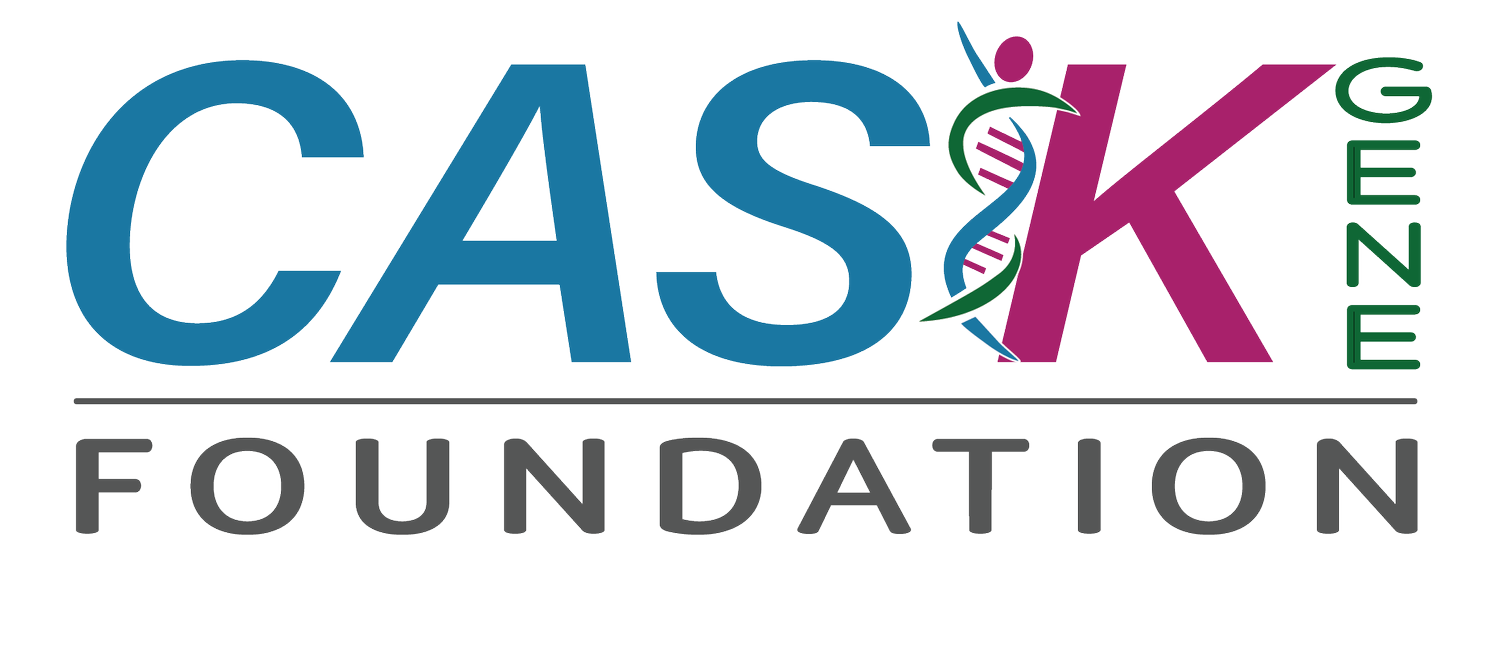
CASK-RELATED DISORDERS
According to the National Institutes for Health, “CASK-related disorders are a group of genetic disorders that affect brain development.” (nih.gov)
To date, CASK research has identified two specific CASK-related disorders:
microcephaly with pontine and cerebellar hypoplasia (MICPCH)
X-linked intellectual disability (XL-ID) with or without nystagmus.
The published outlook is generally thought to be severe, due to the focus of research with the more severe MICPCH cases. However, as more cases are identified and parents compare notes with each other online, they have informally noted that the more severe cases may experience many or most of the following, but more and more cases show just some, or even none of these challenges:
microcephaly with or often without pontine cerebellar hypoplasia, and in very rare cases macrocephaly has been observed
epilepsy or other seizure disorders, including infantile spasms, complex partial seizures, and others
global developmental delays, with varying levels of intellectual delay, gross motor development and fine motor development
orthopedic problems, such as hip dysplasia or scoliosis, altered muscle tone, cerebral palsy
swallowing or feeding challenges that may require nutritional support through a gastro intestinal feeding tube.
other digestive challenges such as reflux, constipation, failure to thrive
sensory challenges, such as hearing loss, vision issues (i.e. nystagmus or a cortical visual impairment), sensory processing disorder, or a reduced response to normally painful sensation or injury
behaviors such as hand flapping when excited or hand biting when upset
other neurological symptoms such as sleep disturbances, temperature regulation issues, poor circulation



